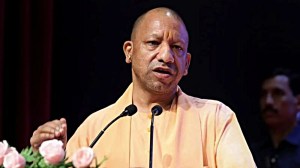Havens of healing
Guess how the All India Institute of Medical Sciences (AIIMS) responds to complaints of sexual harassment on its premises? It puts up little...

Guess how the All India Institute of Medical Sciences (AIIMS) responds to complaints of sexual harassment on its premises? It puts up little notices near its elevators, warning women not to “travel in the lift alone”. This, let us remind readers, is not some deserted patch in the hinterland immune to the forces of law and order. This is India’s most prestigious public hospital located in the heart of the Capital and a supposed haven of healing. The cautionary note near the lift is one way by which an organisation not interested in serious reform shrugs off all responsibility for the crimes perpetrated on its premises. Don’t blame us, we had warned you—is the subtext. But an institution that doesn’t display a concern for self-correction will continue to witness such crimes. Earlier this week a 28-year-old woman, a kidney patient desperate for treatment, was allegedly raped by two AIIMS employees.
The incident underlines the risk facing women patients trying to negotiate the enormous labyrinthine innards of a public hospital, where even access to timely help can no longer be taken for granted. This is because the personnel who run these establishments have emerged so sure of the power they exert over hapless patients—who are often poor and illiterate to boot—that they are accountable to no power on earth, not even the managements of these hospitals. Chennai’s Stanley Medical College Hospital has just had a particularly gruesome case of a 10-year-old girl, again a patient in the hospital, molested by a junior doctor.
The problem clearly calls for action more focused and effective than the mere placing of warning boards near lifts. So deep is the rot in some of these establishments, including quite obviously AIIMS, that those in charge of running them are reluctant to confront the wrong-doer for fear of retribution in the form of wildcat strikes or even physical attacks. Very often, the security of these gargantuan complexes is controlled by vested interests. Security is perceived more as a source of cash-rich contracts, rather than in terms of a system designed to deliver fail-proof protection for both the patients and the men and women who attend to them. This must change. Perhaps the Union minister of health, instead of going on extended foreign tours, should investigate the state of security in our public hospitals—starting with AIIMS.
Photos


- 01
- 02
- 03
- 04
- 05





























